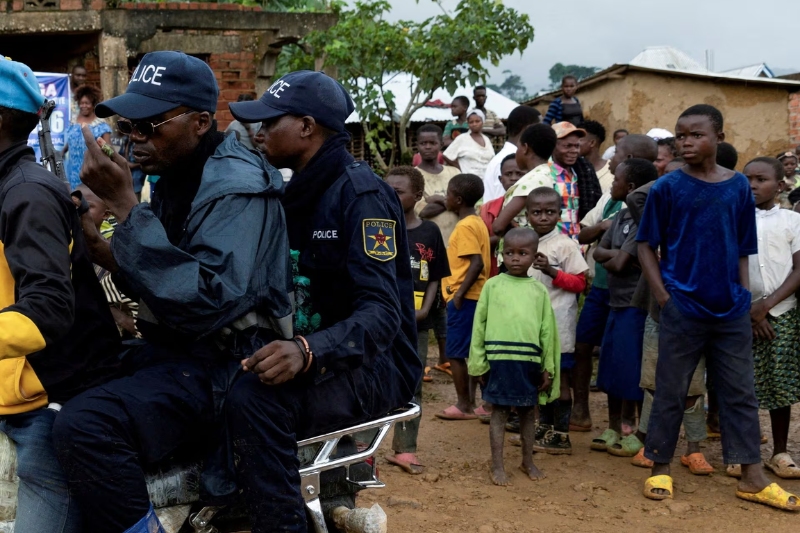Disputed Elections and Observer Assessments
The Democratic Republic of the Congo’s presidential election results, anticipated to be revealed, have stirred controversy following chaotic polling processes. While authorities tout the elections as successful, a discrepancy emerges, drawing attention to the role of observer missions and their divergent assessments.
Catherine Samba-Panza, leading the Carter Center’s international election observation mission in the DRC, acknowledged a generally smooth voting operation across 88 of the 109 polling stations visited. However, significant delays and procedural irregularities marred the process, delaying the opening of some stations.
Challenges and Disruptions Amidst Multifaceted Elections
Conducted simultaneously for presidential, parliamentary, and municipal offices, the DRC’s elections faced significant disruptions. The incumbent President, Felix Tshisekedi, contends for a second term against 18 opposition candidates who have criticized the tumultuous voting conditions.
Massive delays, bureaucratic hurdles, and delayed opening of voting booths marred the process, leading to negative assessments at 21 polling stations by the Carter Center. These challenges, while significant, represent only a partial snapshot of election day proceedings, caution observers.
Extended Voting and Technical Glitches
The electoral body, Ceni, extended voting in select regions until Thursday, attempting to accommodate the disrupted process. However, discrepancies arose as some locations continued voting on Friday, particularly in rural areas, despite delayed materials.
Ceni’s top official, Didi Manara, declared the continuation of voting until queues were cleared, striving to ensure maximum participation across the vast nation, comparable in size to western Europe.
Keep Reading
Observer Concerns and Electoral Dynamics
The Carter Center, reporting technical glitches in 24 polling places, highlighted concerns beyond procedural issues. With over 100,000 candidates vying for various offices and 44 million registered voters, the integrity of the elections has come under scrutiny.
As front-runner Tshisekedi faces a fragmented opposition, comprising figures like Nobel laureate Denis Mukwege and former provincial governor Moise Katumbi, concerns about electoral fraud emerge. The opposition, while decrying chaotic conditions, also raises alarms about potential irregularities.
The unfolding situation in the DRC’s elections poses questions about the validity and fairness of the process, highlighting challenges that could impact the outcome amid a crucial electoral faceoff.
Assessing Electoral Integrity Amidst Opposition Claims
Despite 97% of voting locations opening in what was described as a “miracle,” considering the nation’s vastness, serious irregularities in 21 polling sites raise significant doubts. The Carter Center’s initial findings reveal a mixed picture, prompting concerns about the elections’ legitimacy.
The primary opposition candidates, including Nobel laureate Denis Mukwege and businessman Moise Katumbi, alongside former oil executive Martin Fayulu, express dismay at the chaotic nature of the process and warn of potential fraud.
Anticipating Presidential Front-Runner
The presumed front-runner, Felix Tshisekedi, faces a challenging electoral landscape amidst accusations of fragmented opposition and electoral tensions. The contest holds weight, especially considering Tshisekedi’s position against a backdrop of a divided opposition.
The DRC’s elections, marred by disruptions and questioned validity, reflect a crucial juncture in the nation’s political trajectory. The electorate’s confidence hangs in the balance as concerns over irregularities persist, signaling a critical phase in the country’s democratic evolution.
Conclusion and Key Takeaways
In conclusion, the initial stages of the DRC’s elections have been fraught with challenges, casting a shadow of doubt on the process’s fairness and credibility. Observer missions’ divergent assessments underscore the complexities and potential ramifications of the electoral dynamics.

